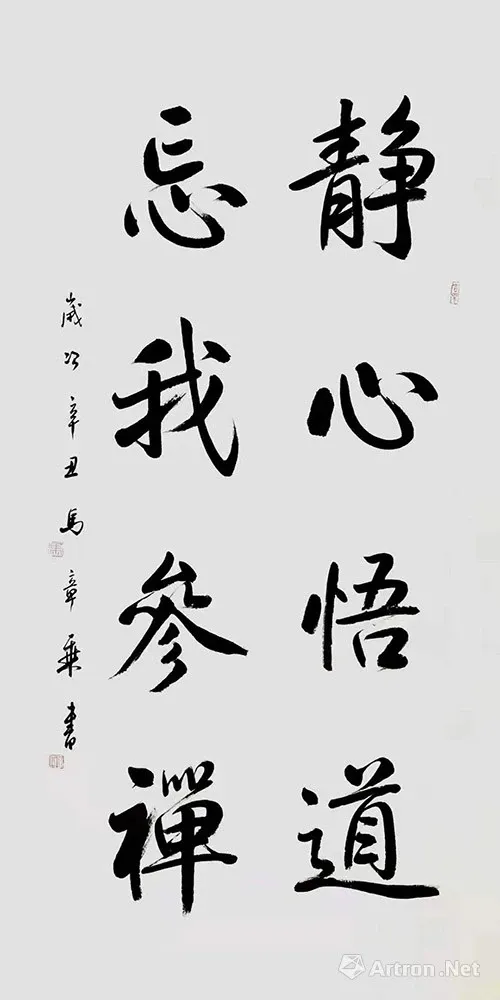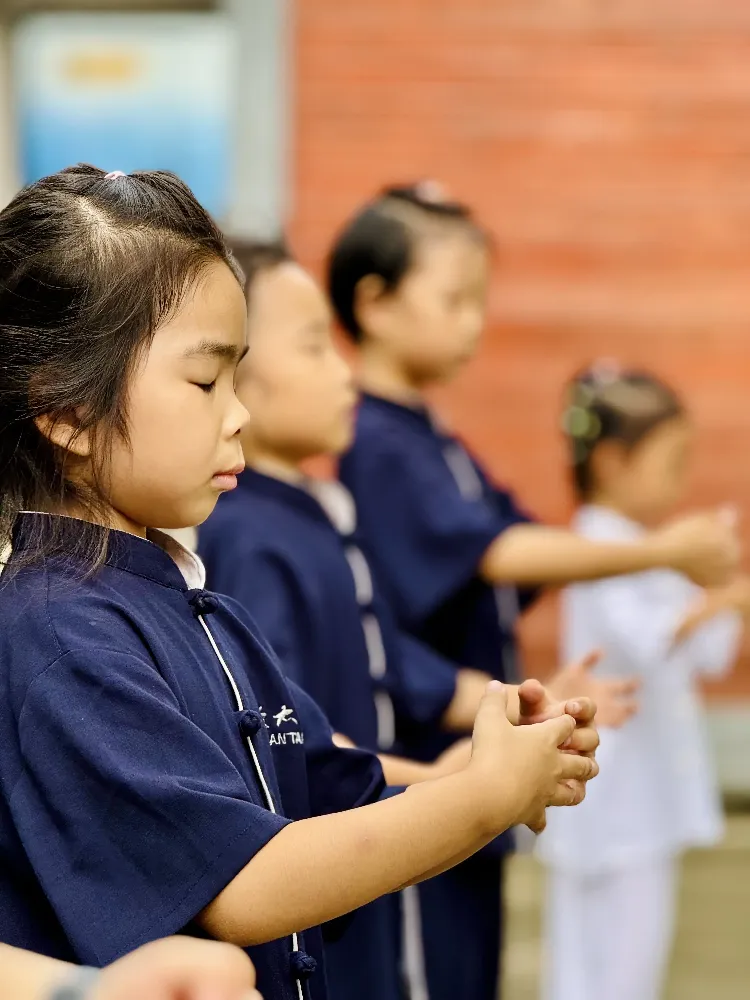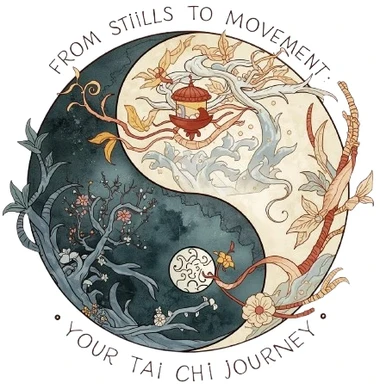When Night Falls but Your Brain Won’t Shut Down...
You crawl into bed, exhausted, but your mind is racing. The to-do list replays. Worries amplify in the quiet. The clock ticks louder with each passing hour.
If this sounds familiar, you’re not alone. Millions struggle with sleep. And while pills promise quick fixes, they often come with side effects, dependency, or just plain disappointment.
But what if the answer isn’t stronger medication... but softer movement?
Tai Chi for sleep isn’t just poetic—it’s practical. It’s a gentle, body-based way to improve sleep quality naturally, calm your nervous system, and ease into rest. Think of it as sleep meditation in motion.
Let’s explore how this ancient practice can help you reclaim your nights—starting tonight.

Why Tai Chi Works: The Science Behind Better Sleep
I used to think Tai Chi was just slow dancing in the park. Turns out, it’s a full-on nervous system reset.
Here’s how it helps you sleep better:
1. It Calms Your Nervous System
Tai Chi activates your parasympathetic nervous system—the “rest and digest” mode. It lowers cortisol (your stress hormone), slows your heart rate, and tells your body: “It’s okay to let go.”
💡 Exclusive Tip: Practice Tai Chi before bed with dim lights and soft music. Your body will associate it with winding down.
2. It Quiets the Mental Chatter
Ever lie awake replaying conversations or worrying about tomorrow? That’s rumination—and Tai Chi helps stop it.
The slow, mindful movements train your brain to focus on the present. Your prefrontal cortex, the overthinking part, gets a break. Your breath becomes your anchor.
It’s like gently sweeping away mental clutter with each movement.
3. It Regulates Your Sleep Hormones
Studies show that mind-body exercises for sleep, like Tai Chi, help regulate melatonin and circadian rhythms. Your body starts to recognize the pattern: movement → calm → sleep.
One study published in BMJ Evidence Based Medicine found Tai Chi improved total sleep time by nearly an hour, reduced time to fall asleep by 25 minutes, and helped people stay asleep longer2.
4. It Releases Physical Tension
Insomnia isn’t just mental—it’s physical. Tight shoulders. Stiff neck. Aching lower back.
Tai Chi gently stretches and relaxes these areas. It’s not about force—it’s about flow. Your body softens. Your breath deepens. Sleep becomes easier.
💡 Exclusive Tip: Focus on your feet during practice. Feeling grounded helps release upper-body tension.

Your 15-Minute Tai Chi Sleep Ritual
You don’t need an hour. You don’t need perfection. You just need consistency.
Here’s a simple Tai Chi before bed routine that takes 15 minutes and feels like a lullaby for your nervous system.
Step 1: Wuji Standing (3–5 minutes)
Stand with feet shoulder-width apart. Arms relaxed. Eyes soft. Breathe deeply.
Let go of the day. Feel your feet connect to the earth. Shift from “doing” to “being.”
💡 Exclusive Tip: Imagine your thoughts melting into the floor. It helps.
Step 2: Cloud Hands (5 minutes)
Move your arms side to side, like painting the air. Let your hips follow. Keep it slow, smooth, hypnotic.
This movement calms the mind. It’s like rocking yourself to sleep.
Want to ensure your form is perfect for maximum relaxation? Our ‘Deep Sleep’ program includes slow-motion breakdowns of every movement.
Step 3: Holding the Ball + Breathing (3 minutes)
Visualize holding a ball of calm between your hands. Inhale—open your arms. Exhale—bring them together.
Each breath collects peace. Each exhale releases tension.
💡 Exclusive Tip: Name your breath. “Inhale calm. Exhale release.” It deepens the effect.
Step 4: Closing Posture (2 minutes)
Stand quietly. Feel your body. Feel your breath. Feel the stillness.
Then head straight to bed. No screens. No snacks. Just sleep.
What the Research Says: Tai Chi vs Sleeping Pills
Let’s talk evidence. Because while Tai Chi feels good, it’s also backed by science.
A major review of 22 clinical trials found that Tai Chi for insomnia improved sleep efficiency, reduced sleep latency, and increased total sleep time—often outperforming traditional treatments like medication2.
Compared to sleeping pills, Tai Chi had:
Fewer side effects
Longer-lasting benefits
Improved mood and cognitive function
Another study showed that older adults practicing Tai Chi online had better sleep and sharper memory than those doing fitness walking.
💡 Exclusive Tip: Keep a sleep journal. Track how your Tai Chi practice affects your sleep over 2–3 weeks. You’ll likely see patterns.
Tai Chi vs. Other Sleep Aids: Why Movement Matters
Let’s compare. Because not all sleep aids are created equal.
| Method | Pros | Cons |
|---|---|---|
| Tai Chi | Natural, calming, improves overall health | Requires consistency |
| Sleeping pills | Fast-acting | Side effects, dependency, grogginess |
| High-intensity exercise | Boosts endorphins | Can overstimulate before bed |
| Static meditation | Calms mind | Hard for restless bodies |
Tai Chi blends movement and mindfulness. It’s gentle enough for bedtime, but powerful enough to shift your state.
💡 Exclusive Tip: If you’ve tried meditation and felt too restless, Tai Chi might be your missing link.
The Emotional Side of Sleep: Tai Chi’s Hidden Gift
Sleep isn’t just physical. It’s emotional.
When you lie awake, it’s often not your body—it’s your heart. Worry. Regret. Anticipation.
Tai Chi teaches emotional regulation through movement. It doesn’t suppress feelings. It helps them flow.
You inhale peace.
You exhale tension.
You move through your emotions, not around them.
💡 Exclusive Tip: Before bed, ask yourself: “What am I holding onto?” Then let it go with each movement.
A Personal Story: From Sleepless to Serene
I used to dread bedtime. I’d lie there, eyes wide, mind buzzing. I tried everything—lavender sprays, sleep apps, even warm milk.
Nothing worked.
Then I found Tai Chi. At first, I felt silly moving slowly in my living room. But something shifted.
My breath deepened. My shoulders dropped. My thoughts softened.
After two weeks, I was falling asleep faster. After a month, I was sleeping through the night.
Now, Tai Chi isn’t just a practice. It’s my sleep ritual. My emotional reset. My gentle path to rest.
Gentle Rebuttal: “Isn’t Tai Chi Too Slow to Help?”
I get it. We live in a fast world. We want fast fixes.
But sleep isn’t a race. It’s a surrender.
Tai Chi’s slowness is the medicine. It forces you to pause. To feel. To breathe.
And in that pause, your body remembers how to rest.
Conclusion: Relearning the Art of Night
Tai Chi for sleep isn’t just about movement. It’s about transition. From day’s Yang to night’s Yin. From doing to being. From tension to trust.
You’re not broken. You’re just out of rhythm. Tai Chi helps you find it again.
So tonight, instead of counting sheep… Count breaths. Count movements. Count on yourself.
Reclaim Your Nights
Ready to sleep deeper, longer, and more peacefully?
Join our “Tai Chi for Deep Sleep” program at Taichi Academy. A 4-week journey with gentle evening routines and mindfulness techniques.
Or start tonight: Download our FREE ‘Tonight’s Wind-Down’ Guided Audio Session. Let our instructor’s calming voice guide you through a 10-minute pre-bed routine.
Your body knows how to sleep. Tai Chi just reminds it.
Frequently Asked Questions: Real Sleep, Real Answers
How long before I notice results?
Honestly? It varies. Some people feel calmer after the first session. Others need 2–3 weeks of consistent practice. The key isn’t intensity—it’s regularity. Even 10 minutes a night can help your body recognize the wind-down signal. 💡 Exclusive Tip: Set a recurring reminder. Same time, same place. Your nervous system loves routine.
What if I don’t have time for a full routine?
No problem. Even 5 minutes of Wuji standing or deep breathing can shift your body into sleep mode. It’s not about doing everything. It’s about doing something—consistently. Think of it like brushing your teeth. Short, simple, but powerful when done daily.
Is Tai Chi better than sleeping pills?
Important Note: We are not medical doctors. This information is for educational purposes. If you are currently taking medication for sleep or have a diagnosed sleep disorder, please consult your physician before making any changes to your routine. But here’s what research shows: Tai Chi for insomnia addresses root causes—stress, anxiety, tension. Sleeping pills often mask symptoms and can lead to dependency. Tai Chi is a mind-body exercise for sleep that empowers you. It’s not a replacement—it’s a complement. 💡 Exclusive Tip: Try combining Tai Chi with other sleep hygiene habits—like limiting screens and caffeine. It amplifies the effect.
Can Tai Chi help with anxiety-related sleep issues?
Absolutely. Anxiety and sleep Tai Chi go hand in hand Tai Chi slows your breath. It grounds your body. It shifts your focus from racing thoughts to gentle movement. Studies show Tai Chi reduces anxiety levels, which directly improves sleep quality. 💡 Exclusive Tip: During practice, silently repeat: “I am safe. I am calm.” It reinforces the nervous system’s shift into rest mode.
